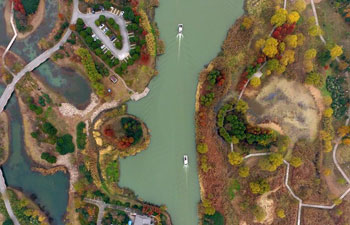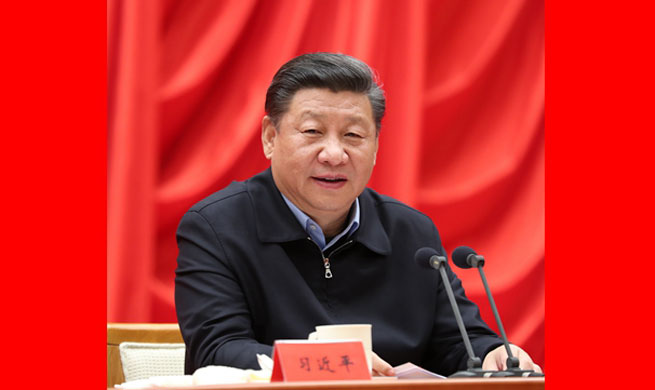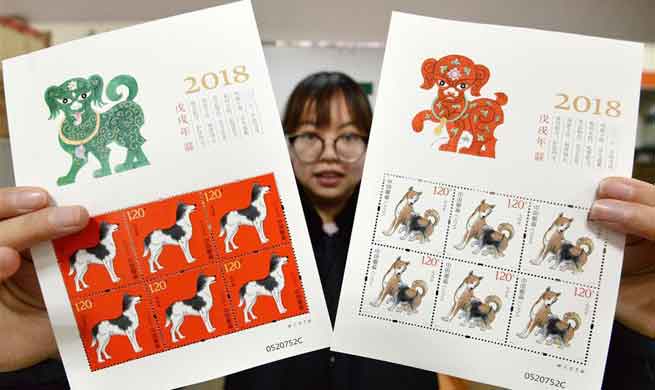BERLIN, Jan. 5 (Xinhua) -- Hundreds of hunting trophies from endangered species were imported in Germany with government's approval in 2017, magazine Spiegel reported Friday.
According to an official response by the federal government to a Green party (Gruene) parliamentary enquiry, the Federal Office for Nature Conservation (BfN) gave its approval to the import of 615 hunting trophies during the past year.
"It is absurd that large amounts of trophies of strictly-protected animals can be imported in complete accordance with the law," Greens chief parliamentary secretary Steffi Lemke commented on the findings.
"Many of the animals are at risk of extinction due to poaching and the loss of habitat," Lemke added.
The Greens politician pointed to approvals for hunting trophies of 24 lions, 26 leopards, 24 hippopotami, 15 African elephants, 14 brown bears and five cheetahs. All of these animals are under strict environmental protection due to their shrinking populations.
Lemke called on the German government to take immediate action to halt the practice. Germany and Europe should reconsider its related position "in light of the dramatic situation of species extinction," she argued.
The import of hunting trophies is governed internationally by the Convention on International Trade in Endangered Species of Wild Fauna and Flora (CITES). Although individual countries can impose import bans, the 28 members of the European Union (EU) have agreed to act in unison in the policy area.
Under the current regulatory framework, trophies can only be brought back to the EU if hunting was legal and animal populations were controlled by gamekeepers in the country of origin. Additionally, the hunting trophies cannot be sold commercially and must instead be destined for private collections, scientific purposes or museums.
In Germany, individual decisions are made by the BfN. However, environmental organizations have repeatedly criticized the authority for what they perceive as excessively lax oversight.
"The BfN does not make adequate use of its legal possibilities to prevent imports," NGO Pro Wildlife said in a statement. Official data on imports of hunting trophies between 2005 and 2014 demonstrate that nearly all applications were approved.
The German Nature and Biodiversity Conservation Union warned that the countries in which the endangered species are hunted often provide insufficient or false information about efforts made to ensure the maintenance of healthy animal populations in the game reserves.
Nevertheless, the BfN responded that it continued to trust the experts it employed.
"The EU Scientific Review Group, as well as the import permit authorities of the EU member states are aware of their responsibility in decisions over whether individual instances of hunting are sustainable or not," BfN said.

















